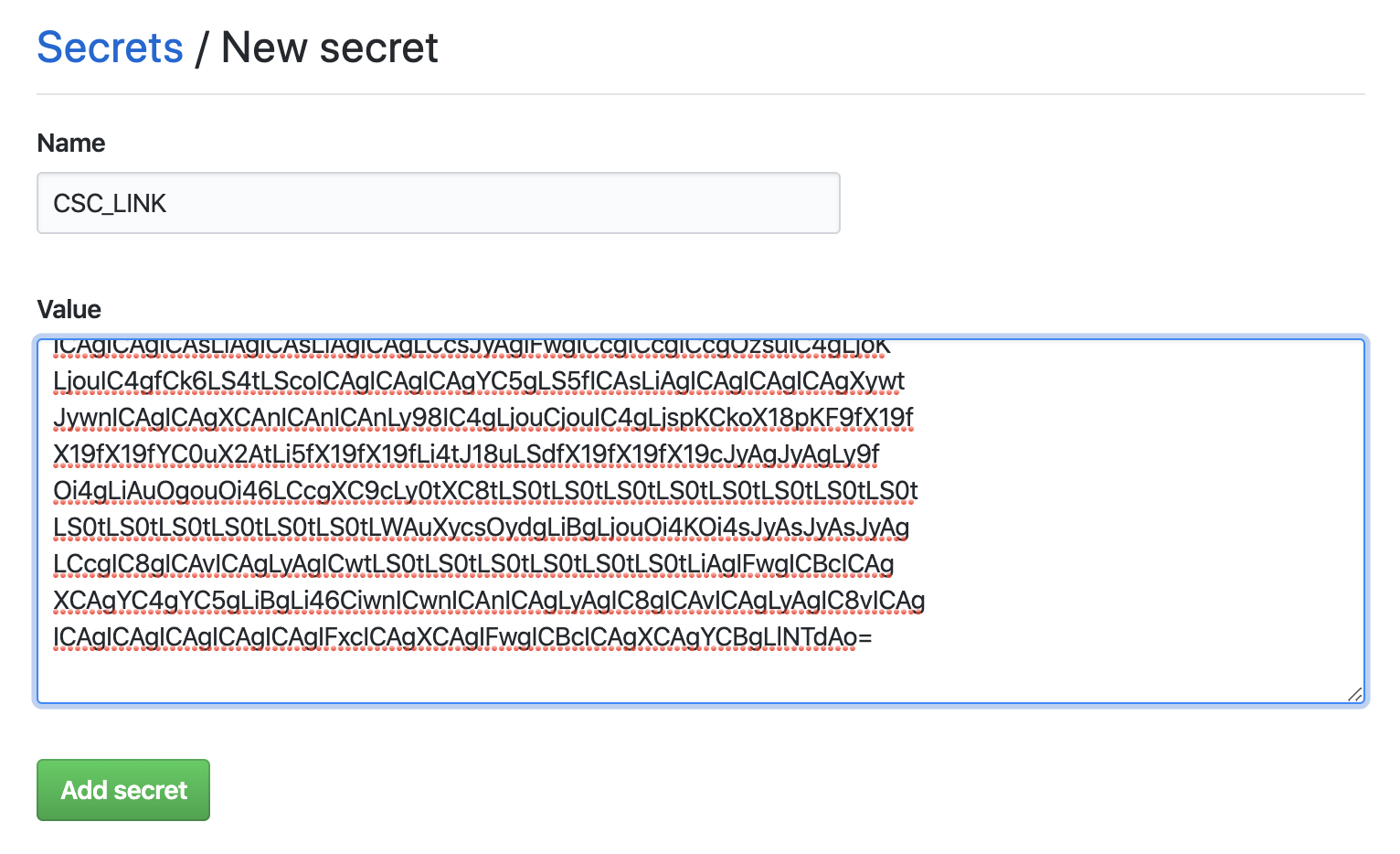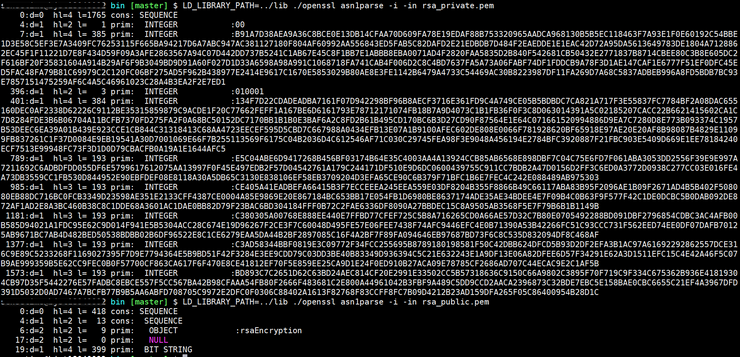
Usually Port 443 will be used for secure channel communication which is also known as https Port.
#Openssl base64 install
Hence it is a common practice to install a SSL Certificate before putting any content in Internet through web server. This will safeguard the communication between server and client. It will encrypt all the communication happening between server and client and hence will make difficult for anyone trying to steal or read the data. SSL Certificate is used secure traffic between client and Server. PKCS - Public-Key Cryptography Standards Why do we need SSL Certificate This tool will use OpenSSL Library to implement its tasks.In most of the Linux systems, this tool will be installed by default. openssl is an opensource command line tool in linux primarliy used to generate ssl certificate with the help of private key and certificate signing request(CSR) file. In this article, I will take you through 25+ Popular Examples of Openssl Commands in Linux. Issuer=O = Keyfactor Inc, CN = Keyfactor Demo Drive ECC 1. PKCS7 Encrypted data: pbeWithSHA1And40BitRC2-CBC, Iteration 1024 GZnlVpX15VqG563RkOvteQ9pnj8gPn5qOZGg9LFQ2J3LMoPNGT8= IDkQZ3ORkirRVgLq+oprbsV8R2N5izCgLiTx5/圆tHnniPSi9QmPMvd40JaDUuj/ W5B4Zhgv8snSdm38cd8VaxTe+lAC52ycZWB/pwtp+l9JtEem64lauCXS5emHJOIV MIHjME4GCSqGSIb3DQEFDTBBMCkGCSqGSIb3DQEFDDAcBAib5okfrVyeJgICCAAwĭAYIKoZIhvcNAgkFADAUBggqhkiG9w0DBwQIyorn+oup9Z8EgZCLE27JvEh5qbes

Shrouded Keybag: pbeWithSHA1And3-KeyTripleDES-CBC, Iteration 1024
#Openssl base64 password
In my case the password I got was also the PEM pass phrase required to access private key and the certificate. Like: $ openssl pkcs12 -in pkblob_decoded.p12 -info Now to verify that the decoding is successful you can run openssl commands. the > is used to direct the output of the command base64 -decode pkcs12blob.txt to file pkblob_decode.p12. Next (at least for ubuntu) run the command: base64 -decode pkcs12blob.txt > pkblob_decoded.p12Įxplanation: base64 is the Linux utility here. MIIF1wIBAzCCBZEGCSqGSIb3DQEHAaCCBYIEggV+MIIFejCCAVcGCSqGSIb3DQEHAaCCAUgEggFEMIIBQDCCATwGCyqGSIb3DQEMCgECoIHIMIHFMCgGCiqGSIb3DQEMAQMwGgQUkdx2oIxyhIyOtnsr+AicfDUrg6UCAgQABIGYw0xT7jD1J0TF78Foq8zJbCu8o4IJJc2lS8NNBWoe9WwC2Y6qldE077u+SUxwediPfd4YzRW3CfzmHhvGVEQD4a0Qc6HwO0WcVhSGeFg71W9XLA/3FDzCh6RT6pOjH66OkImli8G4uN2vFDTrA7JOzkVzFyJ3/JtF65RZNUjF+UDmNbIXxAI50905BrF4JPsReEBnSmq8AvkxYjAjBgkqhkiG9w0BCRUxFgQUIBO5cuYa4i+BSqcrEy. Commands used are for a Linux system but other systems can do the trick as well, you just have to find equivalent commands.Ĭopy the pkcs12 blob to a file, say pkcs12blob.txt.

Since I stumbled upon same problem and although answer exists in the comments but it isn't that clear, I'd like to give a formal answer. Also I didn't know what the local key was or if it was significant so I just redacted it. So I've taken the b64decoded file I've created from the base64 string and ran it through openssl -info, and while it accepted my password it seems to be having some troubles. I think its MIME base64 as the returned string is in chunks of 76 separated by newlines, but at this point I'm just googling things. The API description of the returned data is:Ĭertificate file encoded in base64.


p12 file directly (just pasting it in directly, and also trying pem format of begin/end certificate), and I've tried decoding it to binary via python, but no matter what I do I can never use it to connect to our VPN. p12 file on my drive, but when I create a certificate via the API it returns a base64 string that I'm not sure what to do with. When done through the GUI it just has me save the. I'm trying to automate a rather tedious process of creating VPN users and their certificates on our CheckPoint Firewall.


 0 kommentar(er)
0 kommentar(er)
